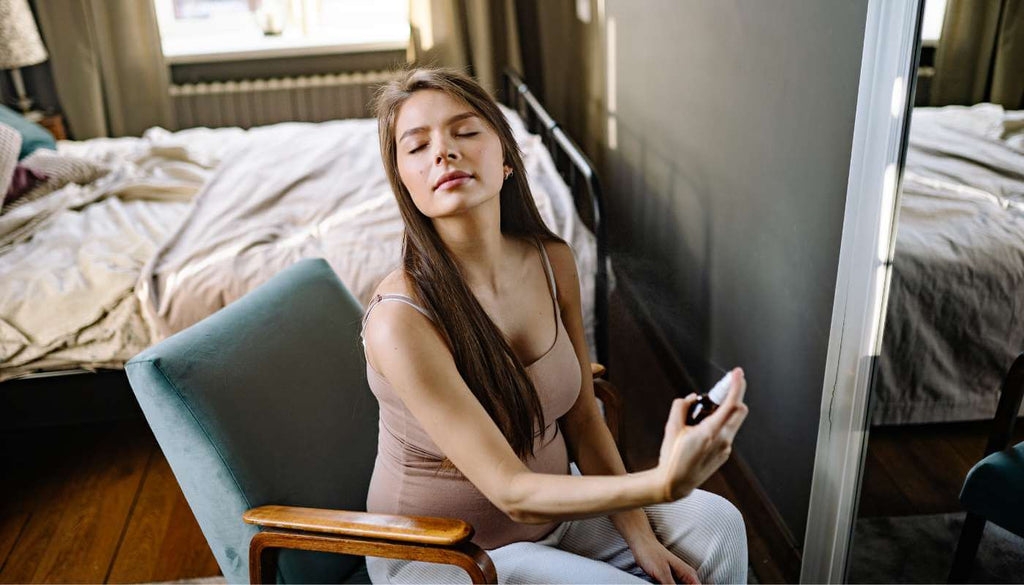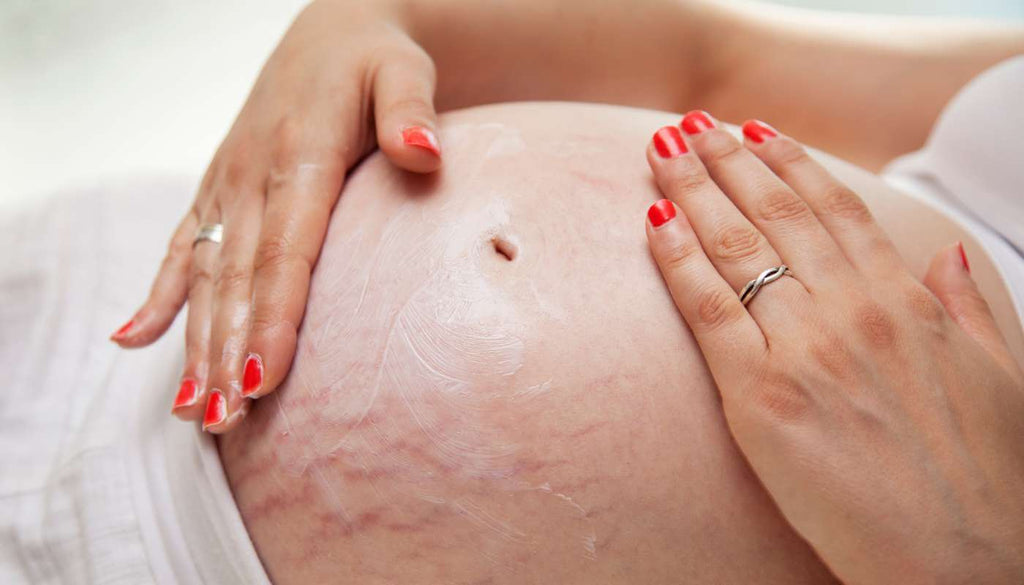
Pregnancy Skincare - What to Look Out For
When you're pregnant, you're not just eating for two, you're using skincare for two as well. There are many chemicals in skincare products that aren't great for adults, so they're certainly not great for developing babies. It's never too late to shake up your pregnancy skincare routine, though, so here's a few ideas on where to start.
Avoiding The Dirty Thirty
The Dirty Thirty is a list of skincare ingredients that should be avoided by everyone, pregnant or not. It's from a wonderful website called Turning Green, and it's a great place to find out about eco living in general.
Perfumes
I do tend to rant about synthetic perfumes, I know. But there are so many problems with the hidden ingredients in perfumes and fragrances that it's worth mentioning again. Because manufacturers don't have to disclose what's in perfumes, they can contain any amount of ingredients that are allergens, irritants, and cause respiratory issues and reproductive issues. If you really want to wear perfume or perfumed products while you're pregnant, choose perfumes that are made with essential oils, and make sure that all the perfume ingredients are listed. You might also want to check out which essential oils you should avoid, too, further down the article.

Phthalates, Parabens, PEGs and other nasties
There's a whole bunch of other skincare ingredients that it's best to avoid, whether you're pregnant or not. Parabens, phthalates, PEGs, BHA, BHT ... Check out this list from David Suzuki. No, you probably won't be able to remember them all, but you can print the list off and check the ingredients before you buy the product.
Natural Deodorants
Another skincare ingredient that it's worth switching is deodorant. It's not just aluminium that you need to watch out for, deodorants can have lots of other toxins, too. And when we say switch to a natural deodorant, we don't mean a crystal deodorant - they're no good for you, either. Check out our Safer Natural Deodorants Cheat Sheet for the best.
Hair Dyes
The jury is still out on whether it's safe to dye your hair while you're pregnant. Many hair dyes contain a chemical called PPD (paraphenylenediamine), which is an allergen and a respiratory toxicant. Some studies have also linked ingredients in hair dyes to cancer. Unfortunately, even the so called 'natural' hair dyes still contain PPD. If you do want to continue to colour your hair while you're pregnant, consider foils or highlights. These are safer as the dyes don't touch your scalp. You could also consider henna, which is completely natural.
Stretchmarks
Although it's tempting to spend lots of money on miracle oils that will prevent stretch marks, the bad news is that stretchmarks are not really preventable. About 90% of woment get them, and if your mother has them, you're more likely to get them, too. Bio Oil is popularly supposed to prevent stretchmarks, but the ingredients aren't great, and the benefits aren't proven (although Bio Oil will tell you they are). Keep your skin hydrated with a natural oil like sweet almond oil, or a good natural moisturiser, and make sure that you're drinking plenty of water.

Make Up
Pregnancy is a great time to start choosing and using natural makeup. Use the Dirty Thirty and the David Suzuki Dirty Dozen list as a starting place so that you know what ingredients to avoid, and explore some of the great natural make up brands that are available in Australia today. Think organic foundations from the likes of Miessence, organic mascara from Lavera, and wonderful ranges from Australian organic brands like Zuii, Ere Perez, and Eco Minerals.
Fake Tans
While fake tans are a sensible alternative to baking in the sun (although we do need our Vitamin D), choose an organic fake tan like the ones from Eco Tan. Applying the lotion at home will mean that you can avoid breathing in any of the chemicals in spray tans.
Nail polish
Nail polish is another one for the toxic beauty list. Fortunately, there are good nail polishes available that are free of the three worst chemicals - dibutyl phthalate, formaldehyde and toluene; there are also five free and even seven free nail polishes available. If you are going to paint your nails while you're pregnant, avoid nail salons. Even if you take your own safer nail polish, you'll still be breathing in all the chemicals from the not-so-safe nail polishes and glues that are being used.
Essential Oils
Although essential oils are natural, they're not necessarily safe. Many essential oils can be irritants, some can cause photosensitivity (meaning that you're more likely to burn if you're out in the sun), and some can cause irritation to the mucus membranes if breathed in. There are a number of essential oils that should be avoided when you're pregnant. Emmenagogue oils may stimulate hormone production and uterine contractions, so they should be avoided during pregnancy. The safest oils to use during pregnancy* are:
- chamomiles
- citruses (bergamot, grapefruit, lemon, lime, mandarin, orange, petitgrain, tangerine) although please note that these can be photosensitising
- frankincense
- geranium
- lavender
- neroli
- sandalwood
- spearmint
- rose
- ylang ylang
Other essential oils to avoid during pregnancy include aniseed, birch, camphor, pennyroyal, sage and wintergreen. There's a great list here on the Bubble & Bee website as well, which includes a list of essential oils everyone should avoid, as well as oils to avoid in pregnancy. It is worth noting that you'd need to use a lot of these oils before you'd have any problems. It's also worth mentioning that just because you should avoid basil essential oil if you're pregnant, that doesn't mean that you should avoid basil. Essential oils are very concentrated, and when you eat the whole plant there are antioxidants and other chemicals that counteract the problematic compounds that are in such high concentration in the oil alone.
*Aromatherapy, A Complete Guide to the Healing Art by Kathy Keville and Mindy Green, 2nd Ed, Crossing Press, 2009.





